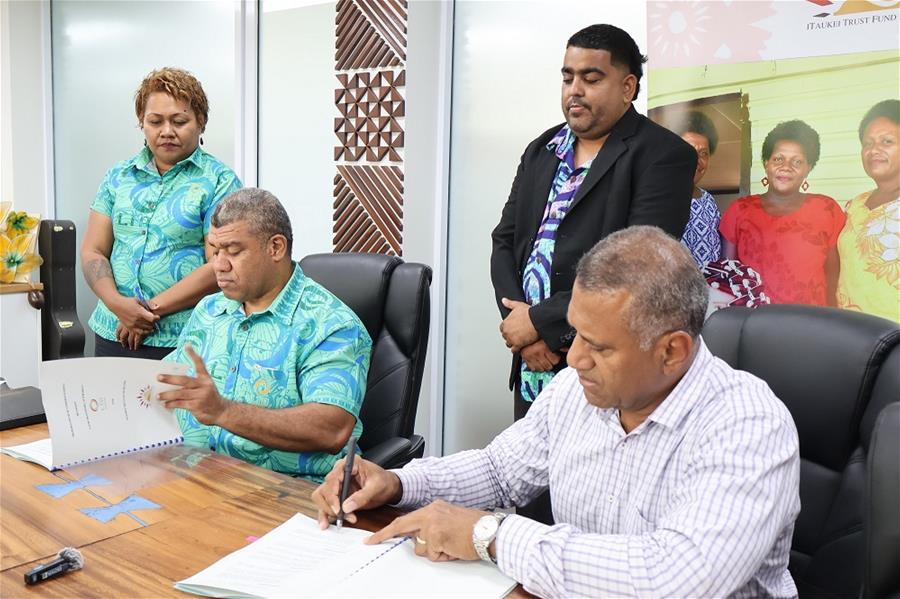SUVA, Fiji (17th September 2025): The Land Transport Authority (LTA) has signed a Memorandum of Understanding (MOU) with the iTaukei Trust Fund Board (TTFB) to support indigenous participation in Fiji’s transport sector.
The three-year agreement, which was signed this week at the TTFB office on Queen Elizabeth Drive in Suva, established a framework of cooperation to support iTaukei communities in rural areas pursuing Public Service Vehicle (PSV) related businesses as well as transfer and tour services.
While LTA will focus on providing technical guidance to help communities meet regulatory requirements, TTFB will assist beneficiaries with applications, capacity building, and general support to navigate the industry.
LTA Chief Executive Officer Irimaia Rokosawa says the partnership reflects the Authority’s vision of inclusive development and its commitment to ensuring that rural communities are not left behind.
“This MOU is about building bridges between regulation and opportunity. By working with the TTFB, we are opening doors for iTaukei businesses to become active participants in Fiji’s growing transport industry.
“Compliance and safety will remain at the heart of this initiative, but equally important is ensuring that communities have a fair chance to succeed. Transport goes beyond moving people; for our villages, it connects them to markets, services, and opportunities that improve quality of life. With the right support, indigenous businesses can play a crucial role in providing these connections,” he said.
Alluding similar sentiments to Mr Rokosawa, the Chief Executive Officer of the iTaukei Trust Fund Board Aisake Taito expressed how such a partnership is beneficial for both organizations aligning to its various mandates.
“This MOU reflects the alignment of our mandates: the iTaukei Trust Fund Board is committed to empowering iTaukei beneficiaries through technical and administrative support, while the Land Transport Authority ensures compliance, regulation, and the facilitation of PSV permits.
“Together, we are bridging regulation with community development. This partnership will open doors for indigenous participation in transfer and tour businesses, expand access to economic opportunities in rural areas, and build the capacity of our people to meet LTA requirements. It will also strengthen evidence-based policymaking through joint data collection and sharing”, said Mr Taito.
At a time where collaboration between stakeholders were even more crucial, it is only proper that concerted efforts are directed towards economic empowerment and compliance standards within the indigenous community.
For TTFB, partnering with organizations that already have skills and expertise in place to boost economic empowerment in the indigenous community means the work is done right and people are provided the guidance and support they need to elevate their economic status.
“TTFB will provide technical assistance, engage partners, and build the capacity of rural enterprises, while LTA will guide permit processes, share data, and support compliance with the law. Jointly, we will collaborate on operations, training, research, and communication protocols to inform better policy.
“Governance safeguards such as confidentiality, dispute resolution mechanisms, and annual reviews will ensure accountability over the next three years. Although there are no immediate financial commitments, this MoU creates scope for future arrangements. Looking ahead, this partnership positions both institutions as enablers of sustainable livelihoods,” added Mr Taito.
In his closing remarks, Mr Taito reiterated that TTFB stood for the interest and wellbeing of livelihoods for both iTaukei and Rotuman people therefore at all time, it would anticipate to serve the community with its best available resources.
“Our ultimate goal is to ensure that rural iTaukei communities are not only participants, but leaders, in the transport and tourism economy.”
